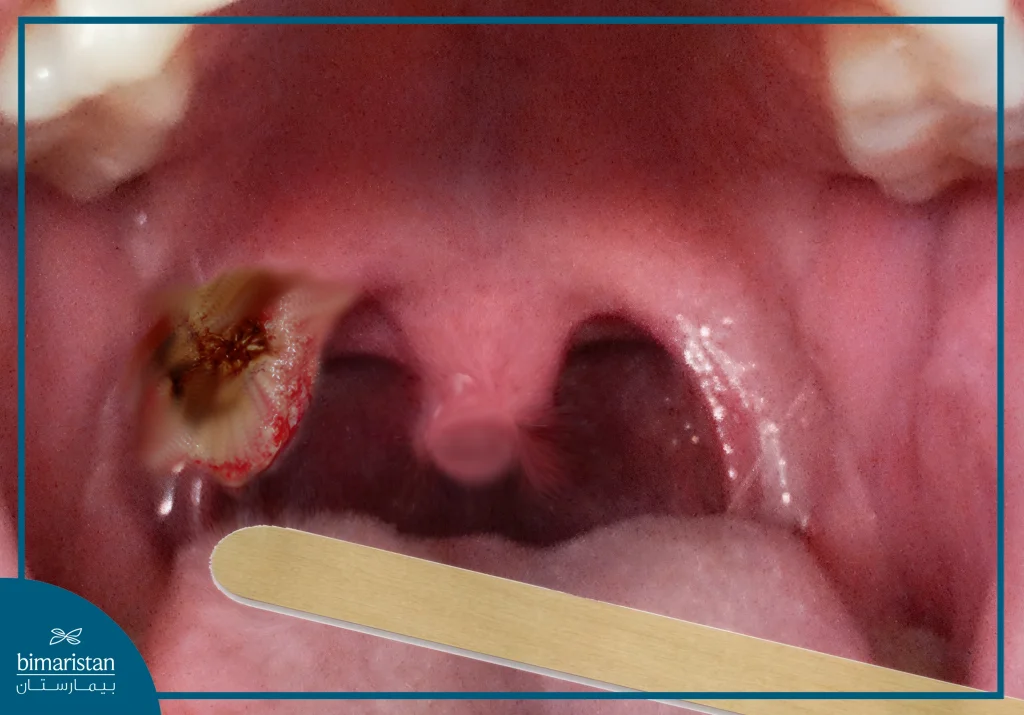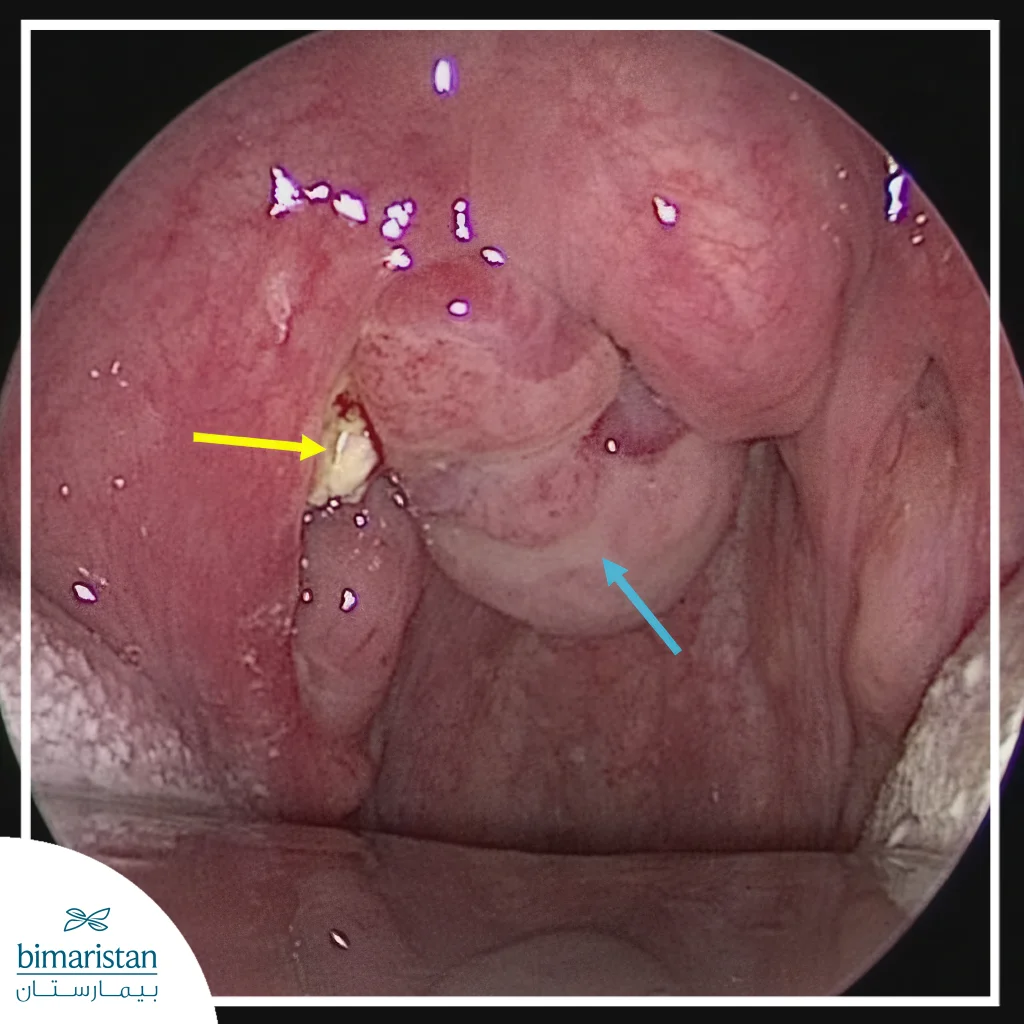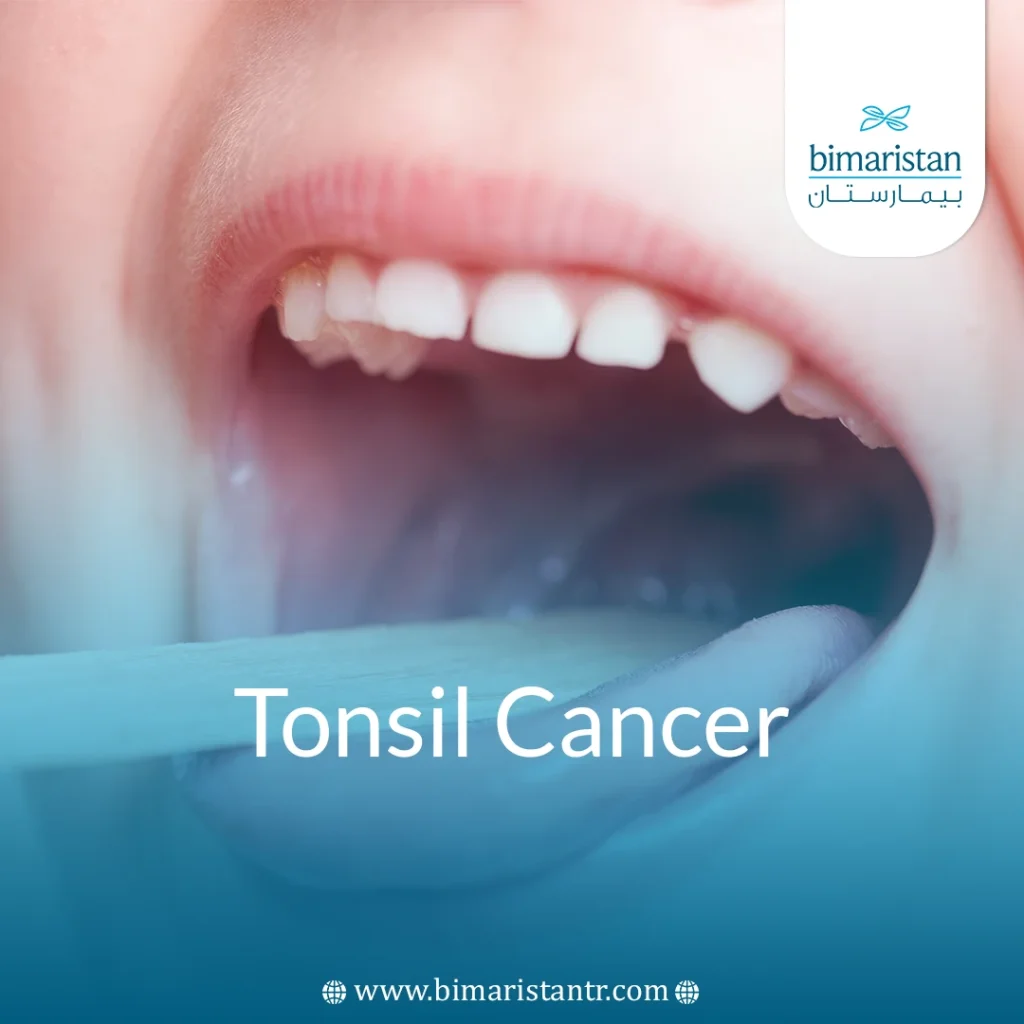Tonsil cancer is a tumor of the oropharynx that manifests with several symptoms, including sore throat and mouth odor. It is alarming, but early treatment prevents the risk of cancer.
While there are many causes of it, the exact cause is still unknown. It manifests itself with several symptoms but may remain asymptomatic and unnoticed by the patient for a long time.
It must be diagnosed early to avoid the potential risks and complications of tonsillar cancer, because early treatment plays a key role in the prognosis and the quality of life of the patient after treatment of the tumor. People who have had a tonsillectomy remain at risk of developing it due to the fact that part of the tonsil tissue remains and is not completely removed. Follow us in this article to learn about it and how it is treated in Turkey.
Introduction to tonsillar cancer
In order to know what palatine tonsil cancer is and how it is diagnosed, we must first know the exact location of the tonsils and how the tumor develops. Tonsillar cancer is a pharyngeal tumor. The pharynx is a muscular tube located at the back of the mouth, nose, and throat covered with mucous tissue, and below the mucous is lymphatic tissue whose function is to defend the body against germs and viruses coming from the external environment.
Cancers of the pharynx and throat arise either at the expense of mucous tissue, called squamous cell tumors, or at the expense of lymphocytes, called pharyngeal lymphoma. In tonsil cancer, squamous cell epithelial carcinoma is the most common, followed by squamous cell carcinoma. It is followed by lymphoma (lymphoma of the tonsils).
The causes of each type of tonsil cancer vary, but the symptoms are often similar. In the pharynx, there are several collections of lymphoid tissue, including nasal tonsils (pharyngeal tonsils), tonsils behind the tongue (lingual tonsils), and palatine tonsils. The palatine tonsil is the most common site for cancer in the pharynx.
What are the symptoms of tonsil cancer?
Tonsil cancer may remain asymptomatic for a long period of time in some cases and the situation in this case is more serious, or its symptoms may be secondary and the patient does not feel its importance, this leads to a delay in diagnosing the cancer and thus the cancerous symptoms appear after the tumor has spread and the treatment becomes difficult and the percentage of recovery is low.
Sometimes the symptoms of the disease appear from the beginning or may be detected accidentally in the early stages, which improves the prognosis of tonsil cancer and makes the cure rate high. There are many symptoms, and the most important symptoms of tonsil tumors include the following:
- A swelling in the upper neck on the side that is characterized as painless
- One tonsil is enlarged on one side and larger than the other
- hoarseness
- General fatigue and exhaustion
- Unexplained weight loss (without a specific cause)
- Pain in the ear (usually one ear, not both ears) or jaw
- Recurrent, persistent (chronic) sore throat
- Blood coming out of the mouth
- Bad breath
- Pain with difficulty swallowing that increases when you eat
- Difficulty opening the mouth
The above includes the symptoms of tonsil cancer in adults; however, this does not mean that these symptoms are specific to tonsil cancer, as they may also be manifested in many other diseases, including those that are not cancer-related. However, the combination of these symptoms with the presence of tumor risk factors, such as advanced age, may indicate cancer.

Causes of tonsil cancer
The exact cause of tonsil cancer or throat cancer remains unknown, although there are definite risk factors for tonsil cancer:
Aging
Older age is one of the most significant risk factors for tonsil tumors, and a previous tonsillectomy does not necessarily prevent tonsil cancer because the procedure is often incomplete, leaving residual tonsil tissue where the tumor can develop.
HPV infection
A virus categorized into several types, the most dangerous of which are HPV 16 and 18, HPV is sexually transmitted and causes warts in the genital area. If this virus reaches the pharynx and tonsils, it can cause squamous cell carcinoma of the tonsils.
Smoking and alcoholism
Long-term chewing or smoking tobacco increases the risk of tonsil cancer or throat tumors, as does alcoholism.
Tonsil cancer may now be seen in young people without previous risk factors, due to the role of genetics and the environment in the development of tonsil cancer.
Tonsil cancer diagnosis
Cancer in the tonsils, throat, pharynx, and even laryngeal cancer is diagnosed by an ENT doctor, who first looks at the patient’s face and neck for any swelling, then comes the palpation phase, where he feels the areas that may be hiding a cancerous tumor in the face and neck.
The doctor also looks at the oral cavity for any enlargement of the patient’s tonsils, and the suspicion of cancer rises when only one tonsil is enlarged.

Your ENT doctor may perform a flexible laryngoscopy if he or she suspects tumor metastases or infiltrations in your throat.
The doctor then takes a biopsy of the enlarged tonsil and sends it to a pathologist, who examines it under a microscope to determine the cause of the enlargement, the type and grade of cancer, and whether or not HPV is associated with tonsil cancer.
Imaging investigations to detect distant metastases and localized spread of the cancer are required, the most important of which are:
- Echo of the neck: To detect the spread of tonsil cancer to neighboring areas.
- A simple chest X-ray: To detect metastases to the lungs, if present.
- CT and MRI: To detect metastases throughout the patient’s body.
- PET Scan: It can accurately detect metastases wherever they may be.
The type of treatment to be followed in the case of tonsil cancer is determined based on the results of radiological examinations and after assessing the extent and localization of the cancer in the patient.
Tonsil cancer treatment in Turkey
Tonsil cancer treatment varies depending on its size, type, invasion of surrounding tissues, and presence of distant metastases. In other words, each patient is prescribed a type of treatment or treatment plan that suits their condition to achieve the best possible results in cancer treatment. In general, treatment plans for non-Hodgkin’s lymphoma include three modalities: Surgery, radiation, and chemotherapy, all of which are performed at the oncology hospital under the supervision of the best doctors in Turkey.
Surgical treatment (removal of palatine tonsils with malignant cancer)
Surgery is used to treat tonsil cancer curatively in most cases when the tumor is small and localized within the tonsil and has not spread beyond it to neighboring organs. In this case, surgery is considered a first-line treatment.
Tonsillectomy is performed under general anesthesia, and the specimen is sent to pathology after surgery to ensure that the tumor has been completely removed. The cure rate for tonsil cancer is 100%, and the patient continues to live a normal life.
Radiation therapy
We resort to radiotherapy if the tumor is large and clearly affects swallowing, or if surgical resection has been performed, but the pathology has told us that the tumor has not been completely removed.
Chemotherapy
We use chemotherapy to treat tonsil cancer if the type of tumor responds to this type of treatment. We also use it if the tumor has spread to distant parts of the body in order to relieve cancer symptoms.
Sometimes we may choose two or all three of the above methods to treat a tumor, and the order in which they are used varies from patient to patient depending on the stage of each person’s cancer.
Tonsil cancer prognosis
As mentioned above, the prognosis of tonsil cancer depends on the stage at which it is detected, its size, metastasis, and type. Tonsil cancer affects adults between 60 and 70 years old and is considered to have a poor prognosis if it is associated with other diseases in the patient.
Recently, squamous cell carcinoma of the throat, pharynx and tonsils has been affecting young people (under 40 years of age) due to its association with HPV infection of the throat, but it still has a better prognosis than the elderly (despite HPV infection in the young due to their better overall health than the elderly).
Tonsil cancer is alarming, but it does not mean inevitable death, but as the tumor stage progresses, treatment becomes more difficult, and accordingly, studies were conducted on tonsil cancer patients to know the percentage of the possibility of living for 5 years with this disease, and the results came according to the studies as follows:
Treating cancer at an early stage: Studies show that the survival rate for at least 5 years is 85%.
Treatment of cancer that has spread to neighboring organs and given metastases to nearby cervical lymph nodes: Survival for at least 5 years is 68%.
Treatment of malignant tonsil cancer in the advanced stages of the disease: Survival for at least 5 years is 40%.
Tonsil cancer is a malignant disease that progresses with silent symptoms until it spreads and causes a deterioration in the patient’s health condition. Recovery is possible, and the earlier the treatment, the better the result. It is preferable not to neglect the smallest symptom that may appear in an elderly person and go immediately to the nearest health care center. Contact us and book your appointment directly to guide you to the best doctors in Turkey for tonsil cancer treatment.
Sources:
- Memorial Sloan Kettering Cancer Center. (n.d.). Types of tonsil cancer.
- City of Hope. (n.d.). Tonsil cancer: Head and neck cancers.
- Healthline. (n.d.). Tonsil cancer: Outlook.
